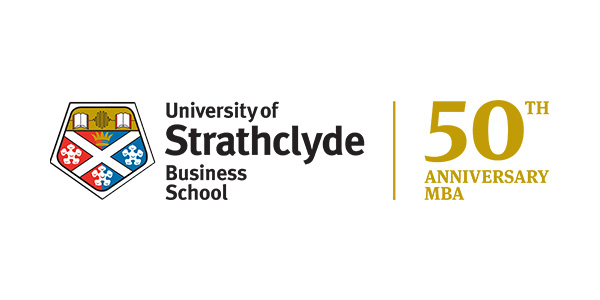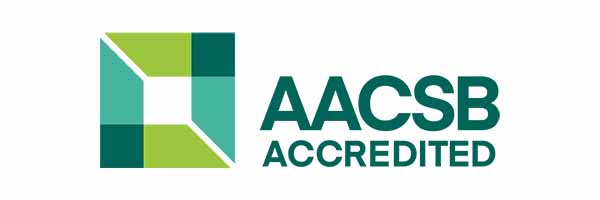MBA Master of Business Administration, UAE
ApplyKey facts
- Start date: April & October
- Study mode and duration: MBA/PgDip: part-time - 2 years
Triple-accredited business school: AMBA, AACSB & EQUIS
Over 50 years: Delivering our prestigious MBA programme
Ranked: FT European Business Schools 2025; Top 40 of the Corporate Knights' 2025/2026 Better World MBA Ranking
Study with us
The Strathclyde MBA is practice-focused, built on rigorous foundations and develops responsible leaders of the future.
During your studies you'll engage with experts on modules organised around building capabilities, strategy in practice, and responsible leadership.
You'll have the opportunity to engage in numerous real-world challenges such as the Consulting Impact Challenge and the Boardroom Challenge. You'll upskill through a range of concepts and new ways of thinking, learn how these are used in practice, and have the opportunity to develop and reflect on your character as a leader.
The Strathclyde MBA will provide you with cutting-edge concepts, ideas and ways of thinking, and the opportunity to enhance your employability and your leadership qualities.
I am honoured to be a part of the Strathclyde Alumni community. The connections and the friendships I have made here are invaluable, and have given me a sense of belonging. I would always recommend earning an MBA if you want to accelerate your career or take it to a completely new direction.
Sumaiya Saddiqui, part-time MBA (UAE)
The Place of Useful Learning
UK University of the Year
Daily Mail University of the Year Awards 2026
Scottish University of the Year
The Sunday Times' Good University Guide 2026
Why this course?
Strathclyde Business School has been delivering the Strathclyde MBA on an executive (part-time) basis via our international centres since 1988. We’ve successfully offered and developed the MBA in the UAE since 1995.
A pioneering and experienced MBA provider, we update and review our MBA to reflect the current business environment. Strathclyde’s MBA is strategy-focused and blends theoretical and practical business learning. Our MBA is flexible and responsive to the needs of working individuals. Our wide choice of electives can help you personalise the programme to suit your business interests. These elective classes can be studied in UAE, as well as in Glasgow or at our other international centres, to give you an international learning and networking experience.
The MBA project gives you an opportunity to examine in depth a managerial, organisational or environmental issue of your choice over an extended period of time.
Our Executive MBA allows you to study whilst continuing with your career and allows you to implement your learning into work.



What is the programme format?
The programme is designed for busy executives who need to combine career and family commitments with the demands of MBA studies. The flexibility of the part-time approach enables most participants to graduate within two years. However, study may be spread over a longer period if necessary, to a maximum of five years.
Typically, your MBA studies will be made up of:
- monthly intensive seminars delivered by Strathclyde academics at our Dubai centre
- regular tutorials with our locally based counsellors
- off-campus learning and support via our virtual learning environment
You’ll work in an international environment alongside like-minded classmates and be part of our long established network of students and alumni from our international postgraduate centres.
A highlight of the Strathclyde calendar is the annual MBA Summer School which takes place in Glasgow, over May and June. The summer school is open to all study routes of the MBA who have reached the elective stage of the programme. It's a great way to accelerate your studies, and network with a large group of international colleagues.
Accreditation
We're a triple-accredited business school: the first business school in Scotland to hold this accolade, and one of only 90 in the world (March 2019, MBA Today), to be triple-accredited, holding accreditation from the international bodies, AMBA, AACSB and EQUIS.
The MBA has also been accredited by the UAE Ministry of Higher Education & Scientific Research.
Hear from our students
Strathclyde has been consistently recognised as one of the topmost universities in the UK and Europe.
Dr Sumaiya Siddiqui, emergency medicine physician
It was a real life-changing experience for me and the learning was fantastic.
Gordon Turner, custom operations manager
Triple-accredited business school
Course content
The Strathclyde MBA programme structure has three distinct building blocks at its core:
- Building Capabilities
- Responsible Leadership
- Strategy in Practice
Each of these building blocks comprises a series of 10 credit modules which clearly embrace the specific leadership challenges and responsibilities facing business leaders.
Building Capabilities provides you with a solid foundation in the management of key functional areas found in today’s business organisations and incorporates an introduction to developing your Consulting Skills. This is further developed, in a highly experiential way, later in the programme where all students play an active part in the Consulting Impact Challenge.
Operations & Project Management
You'll explore the principles of contemporary operations and project management in this module. In doing so, you'll evaluate the inherent tension between managing ‘business as usual’ and change. You'll also examine how these systems of management can contribute to the strategic success of their organisation.
Learning objectives
- deploy operations management principles and techniques to support the strategy of the organisation
- use project management principles and techniques to support the strategy of the organisation
- explain how project management and operations management can be effectively integrated within organisations
- evaluate how the implementation of these systems of management might vary between new value creation and support of ongoing operational activity
- generate strategy from both operational and project perspectives
Entrepreneurial Thinking & Practice
This module will examine the entrepreneurial mindset and ways to bring creativity to bear in pursuit of new sources of value creation. You'll compare attitudes and practices across national and organisational cultures.
Entrepreneurial Thinking and Practice is delivered online.
Learning objectives
- differentiate between traits and mindsets and recognise the role of growth mindsets in entrepreneurial thinking and action
- consider ambiguity and uncertainty in the entrepreneurial journey and examine your personal responses to these conditions
- identify your personal frames of reference and appraise the impact of these on your creative thinking and action
- assess your ability to communicate with empathy and consider how to foster trust and psychological safety to support entrepreneurial thinking and practice for yourself and those around you
- reflect on your entrepreneurial skills, competencies and linked behaviours and how these have developed over the course of the class
Marketing Management
Marketing plays a central role in creating, managing, and delivering value across the supply chain within every organisation. In this module, we examine the concept of marketing and how it operates within consumer, business-to-business, service, and public organisations. You will examine the underlying concepts and frameworks that help organisations to design appropriate strategies.
Over the past decade or so, we have witnessed significant changes in the way in which customers interact with organisations. Developments in technology and data management have led to a re-appraisal of how organisations interact with customers and design relevant marketing strategies. You will address relevant strategies in key decision areas to reflect this necessary change.
In this module, you will also learn how product, pricing, distribution, and promotion strategies add value.
Learning objectives:
- understand the principles, practice, and strategic value of marketing management in different contexts: consumer, business-to-business, services, public and private sector
- discuss the central concepts, issues, and strategic value of branding across organisational settings, markets, and territories
- evaluate the value-creating potential, options, risks, and issues for marketing practitioners
- identify the macro trends in digital, sustainability, globalisation, and demographic change
- describe trends and developments in marketing & brand management practice and evaluate the implications for product development, customer buying behaviour, organisational performance & strategy
- appraise the marketing and brand management approach of an organisation and identify strategic marketing and branding initiatives to improve performance
Managing Value-Driven Analytics
Analytics is a key management tool to drive effective strategies in innovation, adaptability, resilience and sustainability. Analytics is also a key management technique pertinent to effective and efficient day-to-day management and strategic change.
This module will introduce you to managing value-driven analytics from the perspective of a general manager as tools that can be used to drive evidence-based operational and strategic decision-making in a modern workplace.
Learning objectives:
- critique the potential value and practical challenges to managers regarding data and analytics, including around increasing volumes of data, increasing availability of related technology, and increasing expectations from both internal and external customers/end users
- identify and appraise analytical approaches to support evidence-based decision-making in a variety of organisational situations
- use and critique visualisations of analysis to deliver business intelligence insights
- create business intelligence insights via a transparent and reliable application of analytical methods for decisions facing uncertainty
- create business intelligence insights via a transparent and reliable application of analytical methods for decisions facing trade-offs
Consulting Skills (leading to Consulting Impact Challenge)
Many MBA students wish to move into consulting careers, but the requirement for a consulting skill set transcends a particular job role. This module will support you to develop inter-personal, critical thinking, engagement and influencing skills, which will be useful in a variety of roles. This module will help you develop those skills and is assessed at the capstone stage by the Consulting Impact Challenge, where small teams will work on a live client problem in consulting mode.
Responsible Leadership comprises a set of modules which will ensure that you are able to lead strategically, sustainably and ethically, to ensure excellent organisational performance. This involves personal reflection of yourself as a leader and your ability to engage and motivate others around you. Equally, a responsible leader needs to understand the wider context of corporate social responsibility in a Responsible Organisation, meeting stakeholder expectations and operating to economic, social and environmental requirements. The Responsible Organisation module is further developed and realised via the Boardroom Challenge.
Accounting and Financial Management
This module will teach you the language and methods of managerial and financial accounting. You will learn about the key processes and criteria of financial decision making.
Learning objectives:
- demonstrate an ability to discuss, interpret and react to information in financial statements and reports
- explain key accounting and financial management concepts and how they can be applied in the evaluation of organisational financial performance
- appraise the strategic and operational value of accounting and finance functions to organisational leadership teams and performance
- critique the challenges of matching actual practice to ideal standards of ethics, audit activity, regulation and compliance in organisational governance, managerial behaviours and decision-making
- apply accounting and financial management, principles, concepts and methods in conducting a review of financial strategy, performance and governance for an organisation
Leading a Sustainable Organisation
This module will explore the nature of organisations from multiple perspectives and how to nurture a high-performance organisation by addressing structure and design, culture, politics and processes, organisational behaviour and the role of the workforce.
Organisational studies, organisational behaviour and human resource management will be examined through the perspective of sustainability. You will consider the role of the leader in setting the vision, shaping the environment and supporting change. You will also explore how to create sustainable workplaces that attract and retain talent and ensure the health and wellbeing of employees.
Learning objectives:
- discuss the challenges in leading organisations that nurture employee health, wellbeing, commitment and high performance
- demonstrate awareness of key concepts, considerations and methods of managing organisations through understanding and application of theory in organisational studies organisational behaviour and human resource
- critique contemporary perspectives on organisational design, culture, politics and processes, and the workforce
- examine theories and practical considerations relating to planned organisational change and what these mean across the four perspectives of organisational design, culture, politics and processes, and the workforce
- understand where sustainable practice sits in relation to organisational design, culture, politics and processes, and the workforce
Strategic Leadership Development
This module will provide you with a range of learning contexts, theories, knowledge and practical tools to critically reflect on, enhance and adapt their strategic leadership practice. You will be introduced to a range of situational learning and action based approaches to help you engage with and find solutions to strategic leadership problems in the world. As a result of the module, you will develop a life-long mindset of reflection and personal and professional development.
As part of the module you will take part in a Leadership Challenge group assignment and you will also maintain a reflective diary for the duration of the class that captures your leadership learning and practice.
Learning objectives:
- communicate an understanding of contemporary concepts and thinking in strategic leadership when applied to different organisational, cultural and international contexts.
- analyse, appraise and create ethical solutions to contemporary issues of relevance to leadership.
- exhibit improved leadership skill capability through the adaptive application of leadership concepts, styles and practices to real life settings.
- demonstrate an increased self-awareness and understanding of how one’s behaviour is perceived by and impacts on others.
- formulate enhanced interpersonal and communication skills within a developing process of continuous personal and organisational development.
- demonstrate a capacity to act ethically and with integrity in a leadership role
Responsible Organisation (leading to Boardroom Challenge)
Responsible management practice is integral to leadership. By using case study and practice-informed teaching, students will engage with examples, outcomes, and limits of responsible management practice.
Being able to navigate this in the context of a boardroom is a particular challenge, and the module leads to the assessed Boardroom Challenge at the capstone stage of the programme.
Together, the Strategy in Practice modules address how organisations survive, become highly successful, and remain financially viable and legitimate in a global, rapidly changing environment. You will address how leaders make this happen and learn how to use analysis, tools and techniques to develop and implement successful strategies.
Digital Transformation & Technological Innovation
In this module you will examine the role of digital disruption, digital maturity and digital initiatives in shaping organisational outcomes. You will also learn how technological innovation can create value through digital transformation.
Learning objectives:
- develop an understanding of the organisational and institutional implications of digital disruption and digital technological innovation trends
- analyse an organisation’s digital maturity and organisational readiness to engage in digital transformation and technological innovation
- demonstrate a capacity to innovate business processes, business models and operational approaches through the application of digital technologies and organisational change methods
- build a personal capacity in communicating with – and educating – others about digital transformation at strategic and operational levels, and with a variety of stakeholder groups
- demonstrate strategic decision-making, business planning and influencing skills in relation to identifying, appraising and recommending digital transformation and technological options
Applied Strategic Management
This module aims to introduce the major strategic management concepts and theories and help students appreciate the journey undertaken for the development of strategy as well as the content of strategy at different organisational levels. This module will prepare you to transition to higher managerial roles, the responsibilities of which go beyond contributing to strategy and leading strategy and strategic change.
Learning objectives:
- critically evaluate and interrogate strategic aspects for a range of organisations, from new ventures to those with an international agenda and portfolio of businesses.
- utilise strategy theory to identify strategic issues that need be addressed within organisations.
- generate and evaluate a range of options to determine recommendations for an organisation’s strategic issues.
- justify and defend a specific outcome that a strategic analysis generates and the recommendations that are being made.
- reflect and evaluate learning from the engagement with the practice of strategy and the importance of adopting a human-centred, inclusive approach to the effectiveness of strategy activities.
- design an engaged strategy planning process to suit the needs of a specific organisational situation.
Macroeconomics and International Business Environment
This module will examine various long-term and important drivers of the international business environment including developments in the macroeconomy. You will develop a strong grounding in the fundamental aspects of the macroeconomy before exploring how economic shocks affect different features of the global economy, and how economic policy can appropriately respond to developments in the macroeconomy.
You will be equipped with new knowledge and a framework that you can use to assimilate developments in the external business environment and inform your current and future decision-making.
Learning objectives:
- understand the fundamentals of the operation of the macroeconomy
- understand the key drivers of growth in an economy (both developed and developing) and how they can shape business decisions and outcomes
- understand key concepts of macroeconomics, such as inflation, exchange rates, etc
- have knowledge of the different tools and objectives of macroeconomic policy including monetary policy (interest rate and exchange rate policy) and fiscal policy (government spending and taxation) and how they might impact upon individual businesses
- understand the relevance of macroeconomics to the external business environment, and be able to develop macroeconomic scenarios which characterise the economy
- apply methods to analyse the external business environment to understand the key drivers and their relevance and impact in an organisational context, and develop effective strategies to best respond to such trends
Economic Analysis for Strategists
Markets can often be highly complex and judgement can be clouded by this complexity. By taking an approach based on Microeconomic analysis, you will learn to undertake a rigorous and ‘emotionless’ approach to analysing opportunities in existing and new markets, and the potential these hold.
This provides an alternative but complementary perspective on the assessment of business activity, looking externally rather than internally, at the consequences which are influenced by the nature of demand and the behaviour of competitors.
Learning objectives:
- understand the key influences of profit in a business: production conditions on the supply side; and the nature of demand
- learn about a range of decisions businesses face in a market environment
- understand the impact of market structure and competition on profitability
- gain command of the issues associated with entering foreign markets
- appreciate the impact of competition policy on business activity
- develop an ability to apply this thinking to contemporary business issues
You will then move on to select electives from a range of topical and relevant subjects which allows you to tailor the MBA to suit your own personal preferences and interests.
All students take the Consulting Impact Challenge and the Boardroom Challenge – this stage of your MBA journey is an opportunity to integrate the learning and experience from your career to date and from across the programme by working both independently and in teams on these two challenges.
At Strathclyde we want our MBA students to engage with the latest challenges facing business, throughout their learning journey.
One way that we enable that is by offering specialist electives. We offer a number of electives every year, all led by subject specialists, and all containing insights and learning based on the world-leading research we pursue.
And where we think it’s beneficial to our students, we also bring in experts from outside Strathclyde Business School too.
The list of electives can alter year to year dependent on interest and expertise. Recent popular electives include Project Management, Global Marketing Strategy and Developing Effective Consultancy Skills.
Electives are run at some International centres but a highlight of the Strathclyde MBA calendar is the annual MBA Summer School which takes place in Glasgow over May and June.
The Summer School is open to all study routes of the MBA who have reached elective study stage, and is a wonderful opportunity to study your elective choices alongside a group of like-minded international colleagues.
The final part of the Strathclyde MBA is the capstone project, and you will be able to choose the MBA project that best matches your ambitions – you can opt for a research project, entrepreneurial project or consultancy project.
Throughout your studies, business engagement activities at both a module and programme level will ensure that your MBA journey is a highly experiential one, and reflective of current issues impacting the business world.
The Consulting Impact Challenge
Building on Consulting Skills - and relying on active learning – you will work in small groups under time pressure to react to a client brief. Using relevant ideas, tools, and techniques from across the MBA journey, you will aim to produce insights that can generate impact.
The problems faced by clients are often messy and complex, and you will need to use teamwork effectively to move to a successful outcome. This learning journey is completed by engaging in reflective practice to cement learning.
Learning objectives:
- understand and critique the idea of consultancy and a consultancy process
- demonstrate mastery of methods in uncovering and analysing issues in a specific organisational setting
- evaluate, select and apply relevant MBA models, tools and techniques to illustrate options and demonstrate potential outcomes and value-add
- design options for improvement and make recommendations for action which address the needs of clients' organisations
- identify and assess the impact of those recommendations for relevant stakeholders
Boardroom Challenge
Building on the work done on management practice in the Responsible Organisation, the Boardroom Challenge is an opportunity for students to engage with enacting responsible management practice with particular emphasis on managing people and workplaces. You will look at the relationship between fair work and business impact, workers’ wellbeing and societal trends. You will ultimately have to present your work on the impact of investments in fair work, perhaps integrating ideas from other modules, in a boardroom setting.
Learning objectives:
- demonstrate understanding of key theories, concepts and debates relating to responsible management practice
- understand and evaluate key trends associated with sustainable and responsible management practice, and reflect critically on how these practices are enacted within specific organisational contexts
- analyse, appraise and collate intelligence on the individual/workforce, social, environmental and economic impacts of responsible management practice, with particular reference to decent work/fair work and workplace practice
- demonstrate knowledge of the factors shaping management decision-making that affects the practice and outcomes of sustainable, responsible and inclusive people management
- demonstrate critical thinking and reflection in relation to responsible management practice in a range of business and organisational contexts
- understand and evaluate the role of corporate/organisational governance in shaping/informing approaches to responsible management
MBA Project
The capstone element of the Strathclyde MBA is the project, which aims to integrate and consolidate the knowledge you have gained from across the MBA programme and allows you to examine an issue of your choice over an extended period of time.
You can opt for one of three ways to conduct the MBA project:
Research Dissertation
You will undertake substantial research in an area you are interested in. Adopting a traditional Masters project approach, you will complete a research proposal for a piece of original management/leadership research. This will lead to a research dissertation that includes implications for practice.
Consultancy Project
With this option, you will design and lead a consultancy project leading to operational costs improvement, enhanced customer experience or transformed business model within an existing organisation or a similar approved outcome.
Entrepreneurial Business Plan
You have the option to undertake and develop a new business or social enterprise idea
through the stages for the preparation of an entrepreneurial idea. This will include detailed relevant business artefacts including a business plan, marketing and finance projects, short and long-term strategies.
Ranking
Executive MBA
The Strathclyde Executive MBA has repeatedly featured in the annual Financial Times' top 100 ranking of EMBA programmes. The 2024 ranking places us in the top 100 for EMBA programmes globally and Strathclyde is the only Scottish business school to be included in the ranking.
European Business School
In the 2024 Financial Times' Business School rankings, Strathclyde Business School was ranked in the top 100 of European business schools and in the top 15 of the UK schools ranked.

Learning & teaching
The Strathclyde International MBA is a face-to-face taught programme.
All classes are held on weekends and evenings at the Dubai campus and include:
- seminars on Saturdays and Sundays, from 9am to 6pm, which are led by academics from the University of Strathclyde approximately once a month
- tutorial sessions of three hours, held once a week, either in the evening or on weekends. They are led by local counsellors who have been approved and appointed by Strathclyde.
The programme is structured over four semesters. There are two semesters a year and each semester is approximately five and a half months long.
October intake
If you start the programme in October, you’ll undertake the programme in this order:
Semester 1: October
- Marketing and Brand Management
- Accounting and Financial Management
- Economic Analysis for Strategists
Semester 2: April
- Operations and Project Management
- Business Intelligence and Data Analytics
- Leading a Sustainable Organisation
- Grand Challenges of Corporate Governance
Semester 3: October
- Entrepreneurial Thinking and Practice
- Applied Strategic Management
- Digital Transformation and Technological Innovation
- Strategic Leadership Development
Semester 4: April
- Elective subject 1
- Elective subject 2
- Project
Assessment
Assessment throughout the programme involves a combination of:
- course work
- workshops
- group work
- presentations
As far as possible, coursework will be related to your work environment. The assignments are set, marked and validated by the University of Strathclyde academic staff. They're identical to and assessed on the same basis as students undertaking the programme in the UK.
Global Practitioner initiative
At Strathclyde we recognise the pace of change in higher education has accelerated, disrupting traditional operating models and driving innovation in the design and experience of the learning journey.
In this shifting context, Strathclyde Business School has introduced the Global Practitioner initiative – this is an organisational innovation aimed at placing practical expertise and content relevance alongside academic knowledge and intellectual challenge at the heart of a high-quality, transformative student experience.
Bridging theory and practice, Global Practitioners play a crucial role in stimulating and facilitating learning for our MBA, executive education and specialist Masters students. Our Global Practitioners are a new class of colleagues from a diverse range of industries and backgrounds, reflecting the broad nature of subjects addressed in our general management programmes and the rich variety of students and colleague profiles in our learning environment.


The university hosts a variety of events and guest speaker sessions, providing invaluable networking opportunities with alumni and industry professionals. These engagements fostered a strong sense of community among students and graduates.
Executive MBA, UAE
Entry requirements
Our selection process is designed to identify talented professionals from a wide range of academic, business and cultural backgrounds.
While there are formal requirements for entry listed below, we take into consideration:
- your potential
- your interpersonal and team working qualities
- the range and nature of your managerial experience
In order to assess these skills, we ask you to complete a number of essays outlining your experience and aspirations alongside references supporting your work experience and academic record.
We will ask you to undertake a formal interview to discuss your achievements and aspirations. We also encourage you to visit the school or centre you’re applying to and to ask as many questions as you need.
| Qualifications & experience | For entry to the MBA programme you must:
|
|---|---|
| Admissions testing | Although the Graduate Management Admissions Test (GMAT) is not a standard requirement of our admissions process, strong verbal reasoning and numerical abilities are critical for the MBA and we may ask you to undertake such a test.
|
| Competence in English | The MBA programme is highly interactive and requires a high level of competence in English speaking, writing, reading and understanding. A minimum IELTS Academic score of 6.0 (or IELTS General Training 6.5) or TOEFL 550 or iBT 79 is required if your first language is not English. You can be exempt from the English Language Proficiency test if you meet one of the following conditions stipulated by the UAE Ministry of Higher Education & Scientific Research in the 'Graduate Education Admission Regulations for Licensed Non-Federal Institutions':
No matter how fluent your written and spoken English is, unless you meet one of the above criteria, as a UAE accredited programme, we cannot exempt you from the English Language Proficiency requirement. |
| Computer competence | In order to undertake the Diploma/MBA you need to be competent in word processing, the use of spreadsheets and in report writing. We strongly recommend that you have access to your own computer. Guidelines for software and hardware are available from our UAE partner. |
Fees & funding
Fees may be subject to updates to maintain accuracy. Tuition fees will be notified in your offer letter.
All fees are in £ sterling, unless otherwise stated, and may be subject to revision.
Annual revision of fees
Students on programmes of study of more than one year (or studying standalone modules) should be aware that the majority of fees will increase annually.
The University will take a range of factors into account, including, but not limited to, UK inflation, changes in delivery costs and changes in Scottish and/or UK Government funding. Changes in fees will be published on the University website in October each year for the following year of study and any annual increase will be capped at a maximum of 10% per year. This cap will apply to fees from 2026/27 onwards, which will not increase by more than 10% from the previous year for continuing students.
| Republic of Ireland |
If you are an Irish citizen and have been ordinary resident in the Republic of Ireland for the three years prior to the relevant date, and will be coming to Scotland for Educational purposes only, you will meet the criteria of England, Wales & Northern Ireland fee status. For more information and advice on tuition fee status, you can visit the UKCISA - International student advice and guidance - Scotland: fee status webpage. Find out more about the University of Strathclyde's fee assessments process. |
|---|---|
| Tuition fees | Details of fees and payment by instalments are available from your local MBA administrator. |
| Additional costs | Course materialsAll materials including Digital books included in the cost of the course Study abroadElectives - student pays own travel but elective is included in the course cost Potential cost per credit if student on one route chooses to take core class at a more expensive centre. There are a few variations. A one-week summer school option is available to students in Toulouse every year. Students would cover own travel (students arrange this themselves) and accommodation costs (approx 100 euros per week) but no cost associated with teaching. Other costsGraduation gown hire. |
| Available scholarships |
For further information on our scholarships and the application process, please email sbs-uae@strath.ac.uk. |
Careers
We recognise that career development is one of the main reasons why people invest in an MBA. The MBA job market offers plenty of global opportunity but can be complex and challenging.
That's why we offer a dedicated careers service for MBA students. This consists of career planning and skills development as well as unlimited access to personal advice and coaching. Our careers service is delivered in-house and by a team of top consultants.
We work with you to complement your own proactive job search efforts. We help use your own particular career background and strengths to help with your next career move.
You’ll gain the understanding and tools to develop your personal, strategic career plan, as well as the self-marketing and communication skills to make effective applications and impress at interview.
You’ll have the knowledge of the global job market and a range of contacts to make it work for you.
Where you'll find our recent graduates from classes of 23 to 25
- Amazon
- Bank of New York Mellon (BNY)
- Barclays,
- Boston Consulting Group (BCG)
- Gallagher
- Goldman Sachs
- HMRC
- Jaguar Land Rover
- JP Morgan Chase
- KPMG
- Liverpool City Council
- Mondelez
- Network Rail
- NHS Scotland
- NMIS
- Scottish & Southern Energy (SSE)
- Teleperformance
- Tesco Bank
- Thames Water
- Uber
- Vodafone.
Many of our MBA Graduates also work in start-ups and small local businesses.
Jobs our graduates do
- Agile Leader
- Associate
- Brand Manager
- Consultant
- Director
- Global Product Manager
- Growth Strategist
- Head of Business Development
- Management Accountant
- Operations Manager
- Partner
- Principal Design Engineer
- Product Manager
- Project Manager
- Senior Business Analyst
- Vice President
Dedicated MBA Career Resource
You will work with our dedicated MBA careers consultant, Jane Hammond. She will provide you with personalised, high-impact support throughout your MBA journey and beyond - offering tailored coaching, CV and interview preparation, industry insights, networking guidance and job-search strategy. Jane will help you clarify your goals, build confidence, and connect with the right opportunities, ensuring you are fully equipped to navigate competitive recruiting and transition into meaningful, successful careers.
Further information
Go to our dedicated Careers section to get information on:
- Career planning
- Preparing your CV
- The job market
- Interview advice
- Entrepreneurship and innovation
- Employers
- Alumni
- Projects and client consultancy
- Overseas support
Alumni
There are hundreds of MBA and MSc alumni who have passed through the Dubai centre. These graduates comprise an active core of the University of Strathclyde UAE Alumni Association. This also includes Strathclyders from other programmes and campuses who now live in the UAE.
The alumni group has a LinkedIn page and coordinates regular events and initiatives to allow networking, continued education, career progression, and community outreach.
Get more information about some of the recent Strathclyde UAE alumni events and contacts for details about the planning committees for your local alumni chapter.
To ensure that you are on the appropriate alumni mailing list to hear about such activities, please update your details with the university.

Although complex and intensive in nature, I recommend that the students make best use of the MBA programme given that it exposes them to useful theory, comprehensive business topics and real case studies.
MBA graduate
Apply
For information and guidance on the application process, take a look at our How to Apply web page.
Start date: Oct 2025
Business Administration (Executive) - Dubai - October intake
Start date: Apr 2026
Business Administration (Executive) - Dubai - April intake
Start date: Oct 2026
Business Administration (Executive) - Dubai - October intake
Contact us
Darren Cassidy
Student Recruitment & Business Development
Telephone: +9714 7700950
Email: darren.cassidy@strath.ac.uk
Sherwin Sison
MBA Programme Administrator
Telephone: +9714 7700950
Email: sherwin.sison@strath.ac.uk
If you think the right programme for you is an MBA, we would encourage you to meet with our Postgraduate Programme Coordinators in the UAE to discuss the structure and practical aspects of the programme we offer, as well as your options.
Campus location
Strathclyde Business School
Unit G26, Ground Floor
Building 02A
Dubai Knowledge Park
Dubai
United Arab Emirates
Strathclyde MBA study routes
Our MBA is offered through various modes of study, both in Glasgow and in our international centres.




